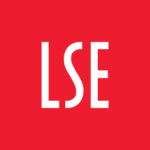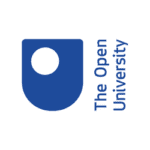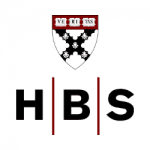Every industry has a handful of people who have shaped, transformed, and revolutionized its ideas, theories, and principles. In the field of business, arguably the most influential was Peter Drucker.
Known today as the Father of Management, Peter Drucker was an Austrian immigrant to the United States who worked as a management consultant. His work in management theory laid the foundations for how companies treat and manage employees and is the bedrock upon which modern corporate America was built.
Born in Vienna in 1909, Peter Drucker grew up in an intellectual home. He studied law in Hamburg and economics in London. There he had a revelation: While all the brilliant economists of the day were studying the behavior of commodities, he was interested in the behavior of people.
This interest in human behavior formed the basis of Drucker’s entire thought process, which was unique at that time. It held that management of any type of organization went far beyond the bottom line and individual concerns.
In 1943, Peter Drucker began a management consulting service that eventually led him to work with some of the world’s largest companies, like IBM, GE, and Intel. He went on to advise presidential cabinets, and throughout his career, he authored 39 books. In 1949, he wrote the groundbreaking book “Concept of the Corporation,” which was his first book about management theory.
Peter Drucker’s management theory
Peter Drucker developed many ideas, concepts, and principles on management theory throughout his career. One of his many insights was, “Management is doing things right; leadership is doing the right things.”
Drucker’s concepts are still used in business throughout the world today. Let’s dive into some of his most famous concepts.
Decentralization
One of the most common themes in Peter Drucker’s management theory was the concept of decentralization of management in the workplace. This essentially means that, rather than managers taking on all the responsibilities as a show of power or control, they should instead democratize or delegate tasks to employees.
This helps workers feel empowered and valued and that their contributions and voices are important to achieving their organization’s shared goals.
Knowledge work
A knowledge worker is a white-collar employee whose main job requires handling and using information. This includes workers like engineers, analysts, and programmers. Decades before computers and the internet changed business and the world, Drucker placed a high value on workers who think creatively to solve problems.
In Peter Drucker’s management theory, this led to the concept of fostering a company culture where blue-collar workers would provide labor and knowledge workers would contribute ideas, insights, and strategies.
Workforce development
One of the central themes in Peter Drucker’s management theory was the idea of people development. He believed that managers should continually work to develop and improve both themselves and their team members.
One way to do this is through ongoing training and education. Drucker particularly saw value in external development, such as participation in conferences or industry trade groups, or other endeavors outside of one’s own company.
Corporate social responsibility
Peter Drucker has been described as a holistic thinker or one who has a “big picture” thought process that sees the interconnectedness between smaller elements that make up larger systems and patterns. In essence, it is the opposite of analytical thinking, which is breaking a larger system down into smaller details.
From this came another aspect of Peter Drucker’s management theory. This was to consider businesses as components of a larger social system rather than individual, discreet entities. This led him to conclude that businesses should think of themselves as part of a community and their decision-making should be viewed through this social lens.
This concept even extends to profits: Companies should be profitable so they can create jobs and wealth that will benefit the broader society in which companies operate.

Social Entrepreneurship
Gain the entrepreneurial skills, tools and knowledge to drive positive change and measure your social impact.
Social Entrepreneurship
Gain the entrepreneurial skills, tools and knowledge to drive positive change and measure your social impact.
Organizational culture
Every company has a culture all its own. Some company cultures may be more positive, others tend to be more negative. Peter Drucker’s management theory was one of the first to advise that managers have not only the ability to shape the culture of their company but that they have a responsibility to do so. He reasoned that, while many factors have the potential to shape a company’s culture, “The spirit of an organization is created from the top.”
In other words, the company’s top management must lead the way and set the example
in establishing and practicing attributes that will shape the attitude and spirit of lower levels of management down to all levels of employees.

Agile Leadership and Management Microdential
Develop Agile Leadership skills to support your professional development and benefit your organisation and teams.
Agile Leadership and Management Microdential
Develop Agile Leadership skills to support your professional development and benefit your organisation and teams.
Management by objectives
Among many enduring themes in Peter Drucker’s management theory is the concept of management by objective, often called MBO. Its definition is management in pursuit of shared goals and its main principle is simply that all employees work together toward agreed-up business goals.
Every employee, from supervisors to workers, has a say and can provide their opinions on the destination of the business. Teams use this information to set goals and delegate work according to a combination of the employee’s skills and interests.
The MBO process has five steps:
- Managers and their team members collaborate to discuss and establish organizational goals for their team.
- Team members take those higher-level goals and break them down into smaller individual objectives that will form the basis of their personal objectives.
- Managers and team members monitor the progress of both organizational goals and personal objectives.
- Managers and team members review and evaluate performance toward achieving their goals based on SMART milestones. SMART stands for Specific, Measurable, Achievable, Realistic, and Timebound and was suggested management writer George T. Doran, then strongly recommended by Drucker in his own training and consulting. The SMART principle is used to help establish and justify objectives at all levels.
- Team members receive feedback from their managers and are rewarded based on their performance and progress toward achieving their goals.
Relevance today
Although its origins date back to 1933 when he began studying economics in London, over the decades Peter Drucker’s management theory has continually been proven to be highly effective in the management of organizations.
Among his many concepts and principles, some of the most valuable today concerning motivating and managing employees. His concepts of decentralization and management by objectives are used by millions of companies around the world today, from small businesses to international corporations.
A common thread that runs through these two concepts is the idea of human behavior and relationships. In Peter Drucker’s management theory, establishing and developing relationships in an organization is critical for its success. This includes not only relationships between workers who perform various roles and functions, but also all between all levels of management and workers.
This idea of the importance of relationships even extends to today’s remote working environment. For remote employees to perform well, they must create and nurture relationships with not only their immediate team members but also others both within and outside their departments. This helps maintain effective communication and collaboration even while working remotely.
Managers too must work to build relationships with their team and other departments so that they can be aware of challenges and help their team overcome them. All these relationships contribute toward the organization meeting its objectives effectively.
A great way to learn more about Peter Drucker’s management theory is by taking leadership courses. Through leadership courses, you can learn not only these concepts and principles but related leadership skills and how you can apply them to manage and lead your organization to achieve its goals more effectively.

Leadership and Communication Professional Certificate
Develop your leadership and communication abilities and learn new techniques in this professional certification from Harvard Business School.
Leadership and Communication Professional Certificate
Develop your leadership and communication abilities and learn new techniques in this professional certification from Harvard Business School.
